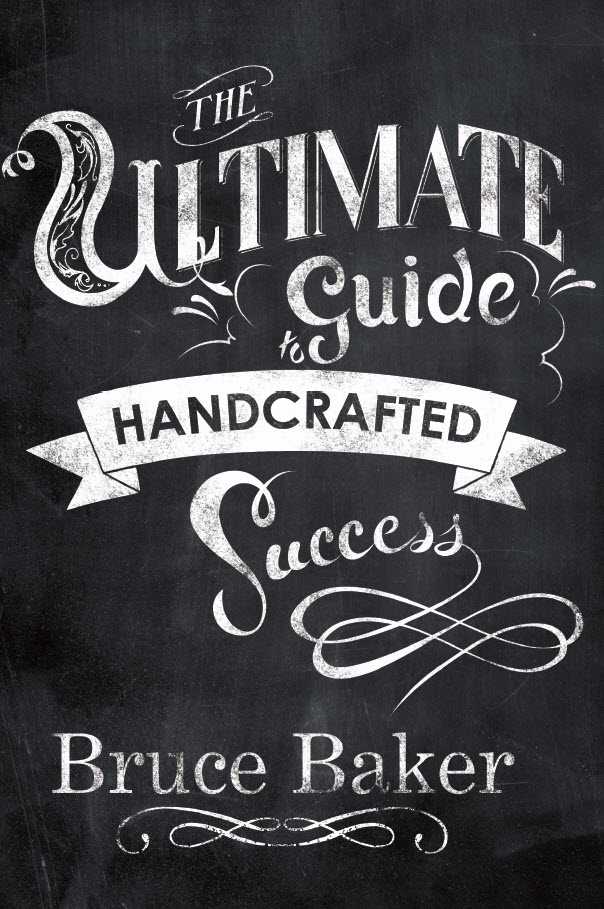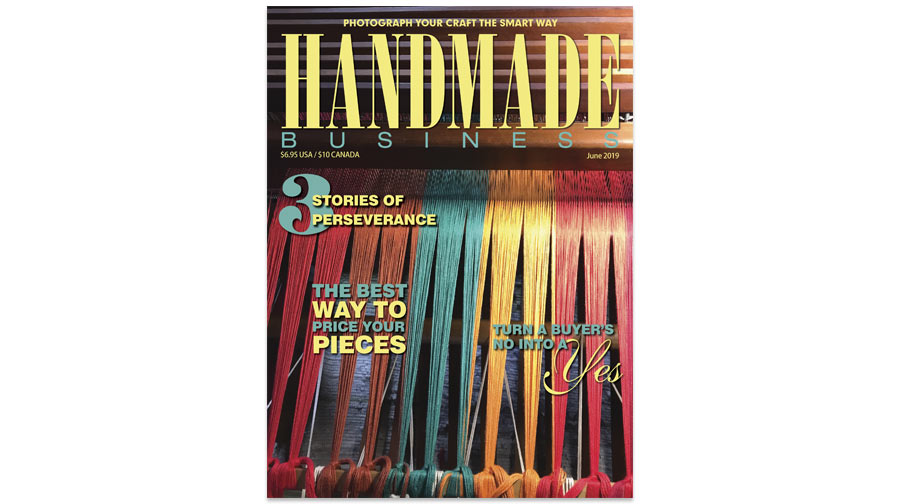By Ryan Jones
“If I had known then what I know now, I would have done things a lot differently.” Have you ever said this to yourself?
Imagine you could send yourself a message from the future, giving yourself advice on what mistakes to avoid in your craft business. The advice would save you a lot of blood, sweat, and tears, and maybe even your business.
Of course you can’t talk to your future self. But the odds are that if you could, you would warn yourself of one or more of these ten common mistakes
#1: Not believing in the value of your work
Believing in your work is the most crucial thing you need to succeed in business. It encompasses quality, aesthetics, and usefulness. You have to know that what you’re doing matters in the world.
If you are trying to sell something you don’t believe in, it will come through. You can’t hide it. People notice.
#2: Inappropriate pricing
Price too high, no one buys; price too low, you don’t make money.
Almost everyone prices low. If you think you’re priced high, you’re probably just lower than you ought to be. Reevaluate annually.
#3: Ineffective marketing
It is self-evident that if people don’t know about your products, they won’t buy them. Yet time after time, beginning craftspeople think it is enough to produce a quality product and hang a sign on the door.
Whether you’re wholesaling or retailing, you will almost certainly need to do some shows and fairs.
Create a sign-up sheet and begin developing an e-mail list immediately. These are the people that have already expressed an interest in your work, so they are the most likely to buy from you.
Consider taking a marketing class from your local college or tech school. An investment of one evening a week for three months will pay back huge dividends.
#4: Not playing to your strengths
Spend your time doing the things you are good at, not struggling at the things you don’t do well. Consider hiring someone who is strong in the areas you are weak.
If you can’t afford to take on an employee yet, find someone who will do it for free: a spouse, relative, or friend.
#5: Poor time management
It’s not enough to work hard. You have to work hard at the right things.
I had a friend who would work hard at sweeping the floor. Don’t get me wrong, it’s important to keep a clean place, but you’re just not going to pay the bills with an immaculate floor.
Figure out what is most important and block out time to make sure you do it.
#6: Ripping people off
Everyone knows if you’re a cheat. You might think you can get away with it, but people find out.
If you double-charge, pass off your work as higher quality than it is, or some other scheme, it will come back to bite you. It is impossible to regain trust once you’ve lost it.
#7: Ripping the government off
Pay your taxes. All of them.
Report your cash income. All of it.
Don’t cut corners with the government. File what you need to file. If you don’t want to face the consequences of tax evasion, then don’t evade taxes.
Ever.
#8: Borrowing too much money
One of the toughest financial situations is to operate a struggling craft business and be strapped with a huge bank payment. Or worse, a high-interest credit card payment.
You may think you need to borrow a lot of money to get going (or keep going), but the truth is that the more debt you have, the less likely you are to succeed.
Your monthly payments could spell the difference between profit and loss. Better to take your time and start small than to make a big splash and be drowned in debt.
#9: Spending too much money
The old adage holds: a penny saved is a penny earned. Actually, a penny earned probably cost you half a penny to get it, so a penny saved is probably worth two pennies earned.
You don’t need a studio if you are able to work from your basement. You don’t need new office furnishings when you already have a desk that works fine. You think it will make you more productive, but it won’t.
Remember, your goal is not to build your ego. It’s to keep your business running.
#10: Not seeking advice
You have a network of smart people around you: personal friends, craft business associates, local business connections, parents, siblings, children, or a spouse. All of them have something to offer, and see things you’re going to miss.
Only fools think they know it all.







